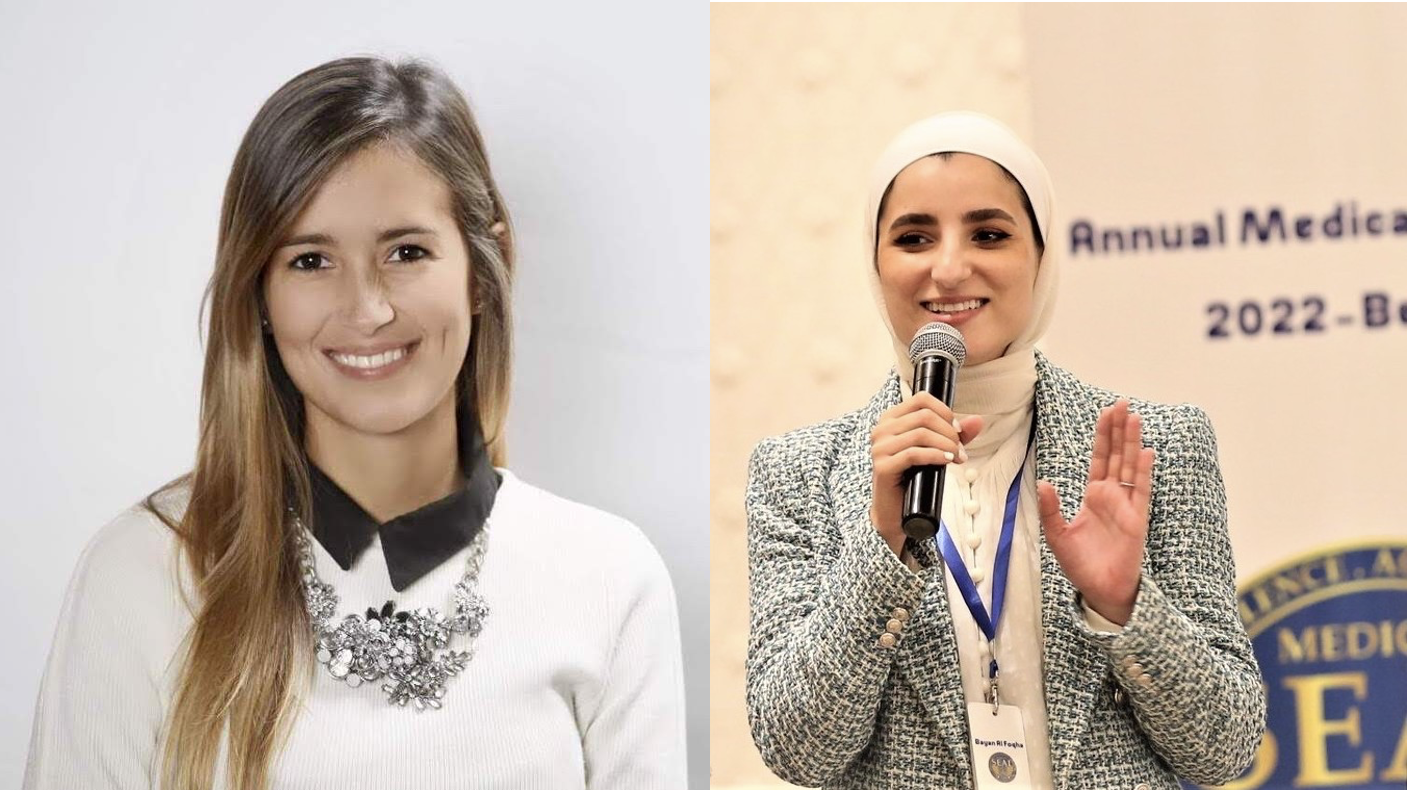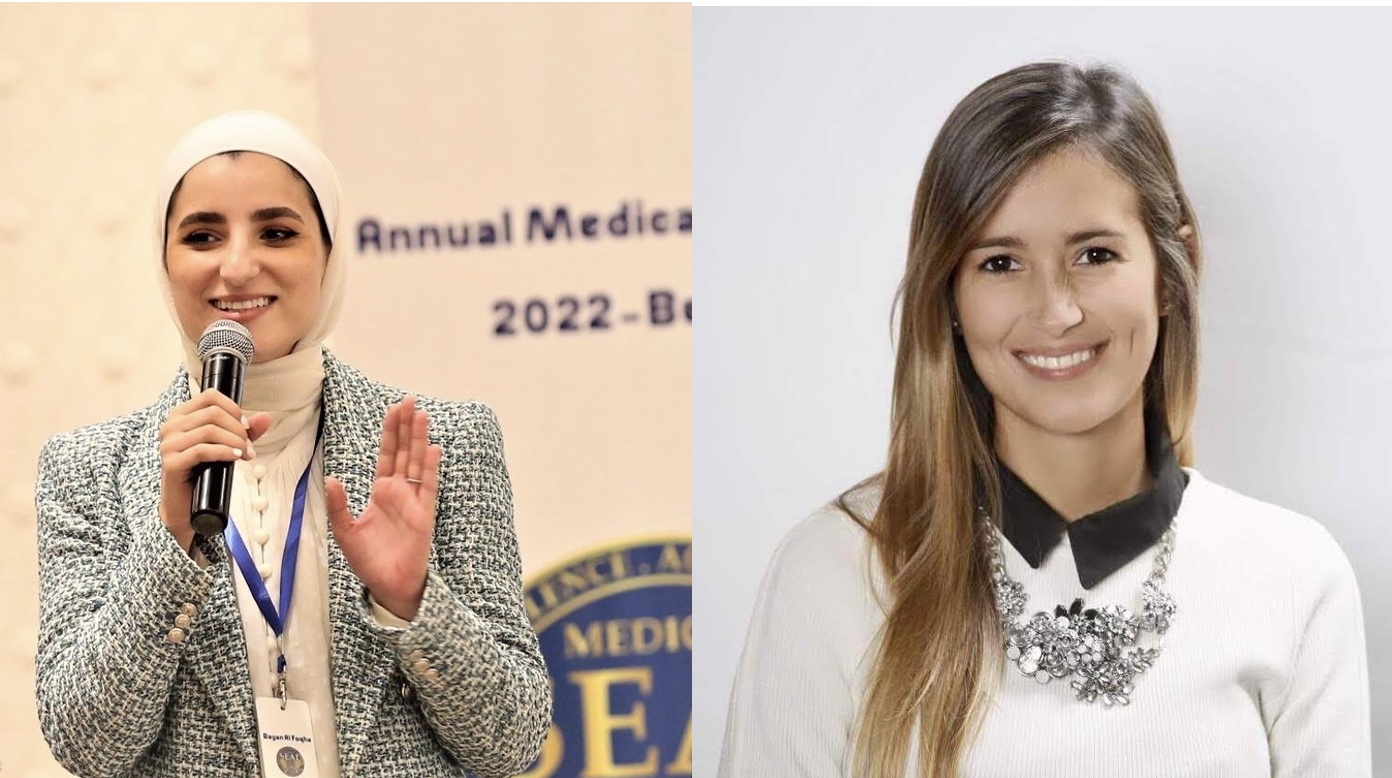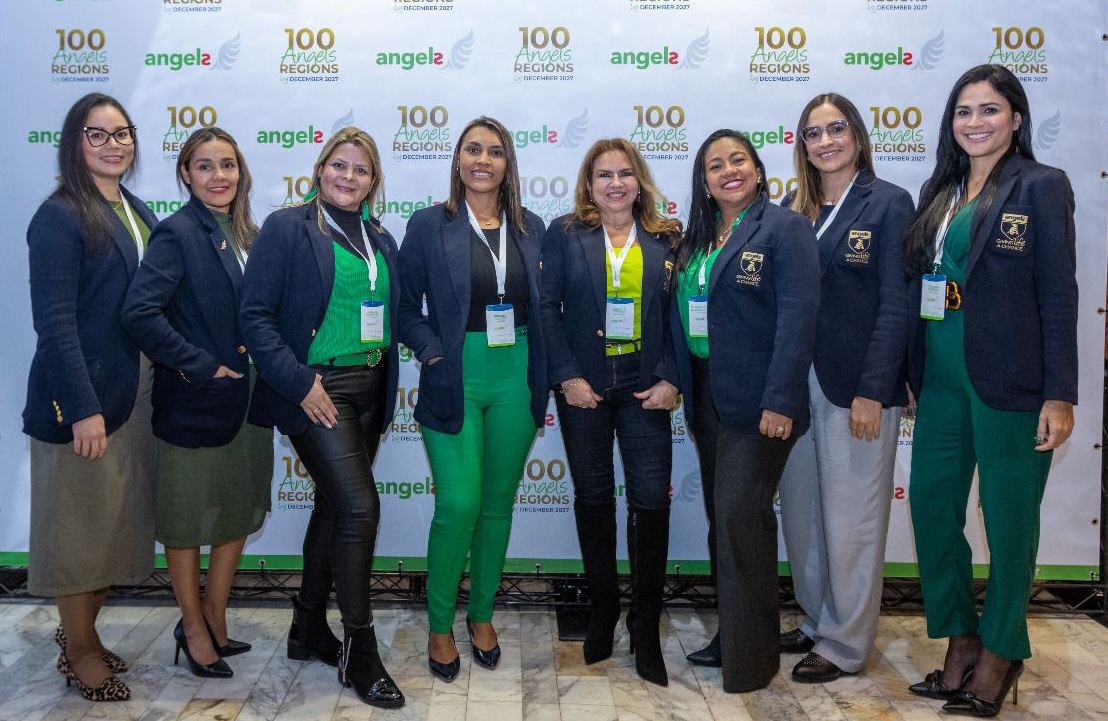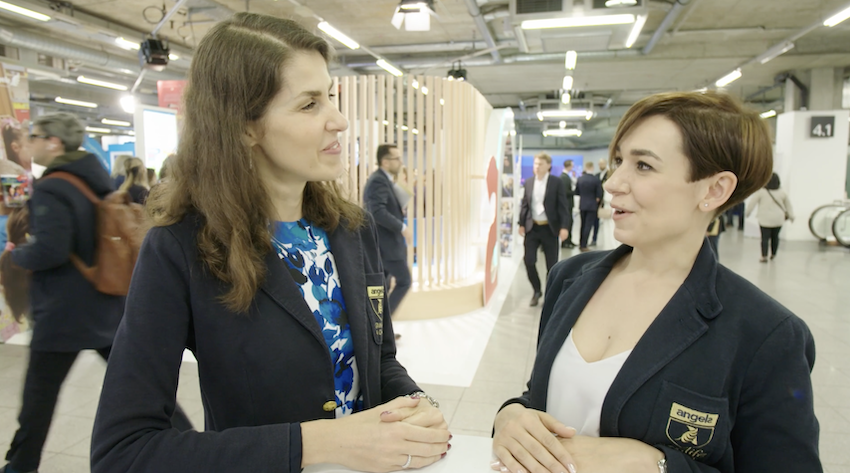
SOL PRE BAJÁNA
Rozpúšťadlo: Ako dlho ste „anjel“?
Bayan: V máji 2023 to budú štyri roky.
Rozpúšťadlo: Čo vás najviac motivuje v práci?
Bayan: Je to počúvanie o zachránenom živote pacienta a o kvalite liečby, ktorú dostával v nemocnici, a svedectvo o tom, aké nadšené sú tímy cievnej mozgovej príhody o rozdiele, ktorý urobili pre každého pacienta.
Môj starý otec z matkinej strany mal mozgovú mŕtvicu a trpel dlho. Volal sa Nemer, ktorý je v angličtine „tiger“, ale znamená to, že bol veľmi odvážny, veľmi odolný a inteligentný muž. Bohužiaľ mal cukrovku, ktorá bola zvládnutá inzulínom, ale nedostatočne kontrolovaná. Časté vystavenie hypoglykémii zvýšilo riziko cievnej mozgovej príhody. Mal niekoľko menších cievnych mozgových príhod a pre nedostatok povedomia o cievnej mozgovej príhode nebol liečený včas.
Cykly ovplyvnili jeho pamäť a ovplyvnili jeho motorické zručnosti. Nakoniec už nedokázal spoznať moju matku – svoju dcéru – a nahneval sa, že moja stará mama, ktorá bola láskou k jeho životu, ho nikdy nenavštevovala v nemocnici. Zabudol, že zomrela a veril, že jeho láska sa oňho už nestará.
Cievna mozgová príhoda nielenže ničí mozgové tkanivo, ale môže vám aj zlomiť srdce. Preto je táto práca mojou vášňou – aby si ostatní starí otci mohli spomenúť na všetky staré dobré spomienky a vytvoriť nové. Každý si to zaslúži.
Sol:Ahoj, myslíš si, že ideš ešte na kilometre v Anjeloch? Myslíte si, že by ste urobili to isté v inej práci?
Bayan: Uprednostňovanie pacienta je to, čo ma núti nemocnice, aby svojim pacientom s mozgovou príhodou poskytovali najlepšiu kvalitnú starostlivosť. Myslím si, že by som mal rovnakú úroveň oddanosti v akejkoľvek inej práci, vždy prejdem kilometre navyše, ale v Anjeloch je to emocionálna časť, ktorá vás motivuje robiť viac.
Rozpúšťadlo: Povedzte mi o odmeňujúcom zážitku vo vašom čase v Anjeli.
Bayan: V momente, keď som si uvedomila, že som bola jedným z dôvodov, prečo 23-ročná pacientka s cievnou mozgovou príhodou a nová mama vychovávajú svoje dieťa s neporušenými duševnými a fyzickými schopnosťami. Najmä preto, že som nová mama a viem, aké ťažké je starať sa o vaše dieťa.
Rozpúšťadlo: Pamätáte si prvú nemocnicu, v ktorej ste pracovali ako konzultant? Čo je teraz iné?
Bayan: V prvej nemocnici, s ktorou som pracoval, mal neurológ zlú skúsenosť s trombolýzou a nemocnica bola veľmi rezistentná. Teraz je držiteľom diamantového ocenenia a uvažuje o rozšírení svojej kapacity úderovej jednotky.
Rozpúšťadlo: Čo je podľa vás najťažšia časť vašej práce?
Bayan: V Jordánsku štátne nemocnice poskytujú liečbu 70 % populácie, čo znamená obrovské pracovné zaťaženie pre personál. Výsledkom je, že nie sú príliš otvorení novým protokolom a postupom. Rezistencia a presviedčanie pacientov o rozdiele, ktorý by mohli urobiť v životoch pacientov s cievnou mozgovou príhodou, je najťažšia časť.
Rozpúšťadlo: Ako môžete určiť prioritu, keď vás o pomoc požiada viac ako jedna nemocnica?
Bayan: Som jediný anjelský konzultant v Jordánsku a nedokážem riadiť veľký počet nemocníc súčasne. Mojou stratégiou je úprimne povedať, kedy budem môcť začať konzultáciu, a zdôrazniť, že nie je to preto, že ich centrum je menej dôležité ako iné centrá, naopak, je to otázka načasovania a kapacity.
Sol: Na čom by podľa vás mala vaša krajina pracovať, aby bolo zaťaženie cievnou mozgovou príhodou viditeľné?
Bayan: Informovanosť, žiaľ, najmä keď pacienti stále prichádzajú mimo terapeutického okna, čo závažne ovplyvňuje rýchlosť trombolýzy.
Rozpúšťadlo: Myslíte si, že Anjelský model je jedinečný? Prečo?
Bayan: Samozrejme, že áno. Predtým som pracovala v troch terapeutických oblastiach a Angels má najväčší vplyv na životy pacientov a lekárov. Pomoc, ktorú ponúkame, a spôsob, akým komunikujeme, musia spĺňať vysoké štandardy a rešpekt, ktorý nám na oplátku preukazujú, ukazuje, aká jedinečná je táto iniciatíva.
Rozpúšťadlo: Ako vidíte iniciatívu za päť rokov?
Bayan: Dovoľte mi, aby som predložil dva pohľady. Jedna z nich sa rozširuje do nových krajín, najmä na Strednom východe, pretože v mnohých okolitých krajinách sú stále medzery v manažmente mŕtvice. Samotný Jordánsko, pretože máme obmedzený počet neurológov, oficiálne sankcie od ministerstva zdravotníctva pre pohotovostných lekárov na riešenie rozhodnutí v nemocniciach, kde neurológov nie sú. To pomôže dosiahnuť moju víziu zachraňovať 5 000 pacientov ročne v Jordánsku.

BAJČIK NA ROZLÍŠENIE
Bayan: Ako by ste opísali súčasný manažment cievnej mozgovej príhody vo vašej krajine?
Rozpúšťadlo: S mnohými príležitosťami na zlepšenie. Aj keď sme za posledné štyri roky veľa urobili, stále potrebujeme dôležité orgány (ako je ministerstvo zdravotníctva), aby sme sa viac zapojili do vytvárania povedomia, najmä v komunite, aby ľudia mohli rozpoznať príznaky cievnej mozgovej príhody a pochopiť dôležitosť rýchleho konania.
Bayan: Aká je vaša každodenná motivácia?
Rozpúšťadlo: Je nepochybne známe, že každé zrno piesku, ktoré vložíme do našej práce, sa bude odrážať v liečbe pacientov a v zachraňovaní životov. Keď idem do nemocnice a lekári mi hovoria, že vedia o Anjeli a vidím, že používajú naše materiály pri liečbe pacientov, napĺňa ma hrdosťou a dáva mi silu pokračovať.
Bayan: Aký bol okamih, keď ste mali najväčší vplyv na starostlivosť o cievnu mozgovú príhodu?
Rozpúšťadlo: Vždy, keď ma kontaktuje lekár, pretože má záujem o Anjelské kurzy, alebo žiada o materiály, alebo preto, že chce replikovať to, čo sme robili v inej inštitúcii. V týchto chvíľach mám pocit, že robíme rozdiel.
Bayan: Aký príbeh pacienta s mozgovou príhodou vás inšpiroval najviac?
Rozpúšťadlo: Je to príbeh centra v Ekvádore, ktoré prešlo z ošetrujúcej nemocnice o tri mesiace. V apríli sme absolvovali multidisciplinárne školenie, v máji sme úspešne absolvovali simuláciu a v júni bol ich prvý pacient trombolyzovaný v rekordnom čase. Keď nám ošetrujúci lekár povedal tento príbeh, bol taký nadšený, že sme boli nesmierne šťastní. Nielenže to zachránilo jeden život, ale otvorilo to dvere pre túto inštitúciu, aby sa začalo šetriť oveľa viac.
Bayan: Ktorá z vašich nemocníc obsluhuje pacientov s mozgovou príhodou najvyššej kvality? A prečo?
Rozpúšťadlo: V Ekvádore by to bola nemocnica so špecializáciou Eugenio Espejo, jedna z najväčších v krajine. Majú šťastie, že majú lekárskeho riaditeľa, ktorý je veľmi zapojený do Anjelov a chce zlepšiť liečbu pacientov s cievnou mozgovou príhodou. Snažia sa získať cenu Angels Award.
Spomínam si aj na nemocnicu IESS Hospital v Ambate, prvú nemocnicu v Ekvádore, ktorá získala ocenenie Angels Award. Počas roku 2022 dvaja lekári z tejto nemocnice oslovili 15 ďalších inštitúcií, aby im povedali, ako to robia, a pomohli zlepšiť procesy v nemocniciach, ktoré to potrebovali.
V prípade Peru je Národný inštitút neurologických vied vedený neurológom, ktorý roky venuje zlepšovaniu procesov a liečby pacientov s mozgovou príhodou. Je to jedna z dvoch verejných nemocníc v Peru s certifikáciou WSO. V dotazníku RES-Q majú najviac údajov o pacientoch a neustála analýza im pomohla zlepšiť ich časy od dverí k ihlám. Vykonávajú tiež každoročné kurzy pre celú lekársku komunitu a každoročne v októbri spúšťajú komunitnú kampaň na zvyšovanie povedomia.
Nakoniec je tu súkromná klinika Ricardo Palma Clinic, ktorá v roku 2022 získala certifikáciu WSO vďaka tímu pre apoplexiu, ktorý trávi hodiny a hodiny hľadaním najlepšieho spôsobu liečby pacientov s apoplexiou.
Bayan: Aká bola vaša doposiaľ najťažšia výzva na vašej ceste Anjela?
Rozpúšťadlo: Na jednej strane oslovuje štátne orgány, aby zabezpečili, že cievna mozgová príhoda skutočne zaberá miesto, ktoré si zaslúži v rámci zdravotnej agendy. V Ekvádore sme boli úspešní, ale v Peru sa o to pokúšame.
Ďalšou veľkou výzvou je čas. Sme len dvaja ľudia, ktorí pokrývajú dve krajiny, a niekedy nemôžeme reagovať na inštitúcie tak rýchlo, ako by sme chceli.
Bayan: Čím sa anjeli líšia od iných iniciatív v oblasti zdravotnej starostlivosti?
Rozpúšťadlo: Ešte som nenašiel, aspoň v Peru a Ekvádore, iniciatívu, ktorá robí to, čo robíme. Všetci sme spojencami zdravotníckeho personálu, ktorí sledujú rovnaký cieľ, aby sme zlepšili pomer liečených pacientov, aby viac pacientov s cievnou mozgovou príhodou malo ďalšiu šancu na život.
Bayan: Ako vás osobne ovplyvnila práca pre Anjelov?
Rozpúšťadlo: Keď nám lekári povedia, že ich nemocnica začala liečiť vďaka Anjelom a našim simuláciám a školeniu, toto mi prinieslo obrovské vzrušenie a spokojnosť s prácou, ktorú vykonávam.
V rodine som mal mozgovú príhodu a vždy, keď mi lekár povedal o úspešnej trombolýze, myslím na toho rodinného príslušníka, ktorý čakal na to, aby ich obľúbená osoba odišla z nemocnice, a na ich radosť z toho, že ich vidíme zdravé a spoločne sa podelíme o nové dobrodružstvá. Vedieť, že robíme všetko, čo je v našich silách, aby sme vytvorili nové príležitosti pre milióny rodín, je skutočne neoceniteľné.
Bayan: Čo sa zmenilo vo vašej krajine odkedy ste sa pripojili?
Rozpúšťadlo: Nepochybne najväčší úspech sme dosiahli v Ekvádore, kde sme dokázali poskytnúť cievnej mozgovej príhode potrebnú viditeľnosť. Niekoľko mesiacov po tom, ako som sa pridal k Anjelsovi, bola podpísaná dohoda s viceprezidentom Ekvádoru, v ktorej sa 30 nemocníc do dvoch rokov stane centrami pripravenými na mŕtvicu. Vytvorili sme tiež kampaň na zvyšovanie povedomia s tromi rôznymi ministerstvami, aby sme naďalej podporovali povedomie medzi obyvateľstvom.
Bayan: Aká je vaša najlepšia rada pre anjelov?
Rozpúšťadlo: To sa úplne líši od toho, čo zažili v minulosti. Spomeniem aj spokojnosť, ktorú sme získali z pohľadu zmien, ktoré majú vplyv na životy pacientov. Povedal by som im, že Anjelský tím je úžasný a že všetci máme spolupracujúceho a empatického ducha, ktorého som na iných miestach nevidel.
Sme šťastní, keď vidíme príbehy z krajín, do ktorých sme nikdy neboli, máme záujem replikovať osvedčené postupy od ľudí, ktorých nepoznáme, a oslavujeme úspechy nemocníc, o ktorých sme nikdy predtým nepočuli. Nejde len o lekárov a nemocnice, ale aj o to, aby sme sa navzájom motivovali.



